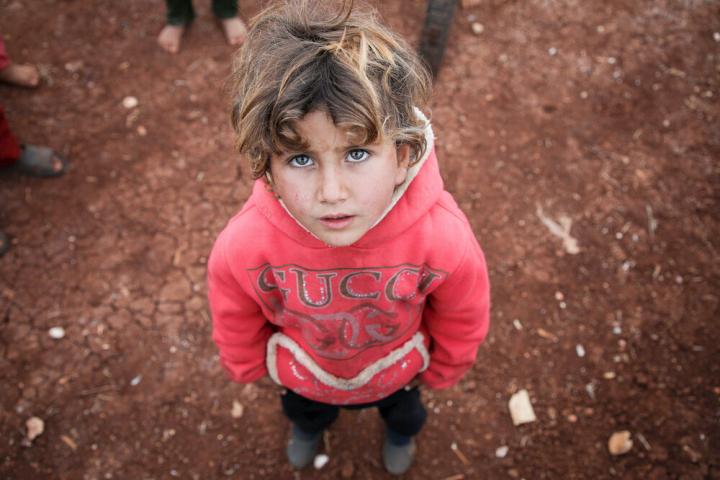Protecting Children in Armed Conflict
Report – launched on the first International Day to Protect Education from Attack – calls for a single, all-encompassing international legal mechanism to protect children in armed conflict.
Quick Links
*August 2021 Update: Read our 'Focus on Afghanistan'
From our 'Children in Conflict' Group
------------
Download this resource
Listen to this podcast
Leading legal change so that children are better protected

Theirworld, Save the Children and the Global Health Academy have launched a report ‘Protecting Children in Armed Conflict’ led by Shaheed Fatima QC of Blackstone Chambers – marking the first International Day to Protect Education from Attack (9th September 2020).
It is an executive summary of a longer legal report which was part of the Inquiry on ‘Protecting Children in Armed Conflict’ set up by Gordon Brown, the former UK prime minister and one of our alumni.
This new summary seeks to make the report findings more accessible to a wider audience.
The report calls for urgent and far-reaching reforms to international humanitarian and human rights law to end the war on children.
It is unconscionable that the world stands by when children are being attacked in their schools and denied access to vital humanitarian aid. This report sets out an agenda which every government and every organization working on children affected by conflict should act on, to end the culture of impunity.
Unacceptable violence towards children
Despite a reduction in the number of wars between states, conflict within countries has multiplied in recent years.
The report notes that there are more children in situations of conflict than at any time in history. It focuses on the United Nation’s 6 grave violations of children’s rights:
-
Killing and maiming
-
Recruitment and use of children in conflict
-
Sexual violence
-
Child abduction
-
Denial of humanitarian access and assistance
-
Attacks on schools and Hospitals
By any measure of suffering experienced by children caught up in conflict, we are living in a truly dark age, with a culture of impunity surrounding those who deliberately harm or fail to protect children.
Children in places such as Syria, Yemen and South Sudan are experiencing extreme violence and brutality, the report authors say.
As conflicts become increasingly urbanised, civilians are more likely to be affected, with children suffering the gravest consequences.
Unified approach
Shaheed Fatima QC, a leading human rights lawyer from Blackstone’s Chambers, argues that there should be a single international law, or instrument, which brings together legal protections for children in armed conflict.
This comprehensive legal instrument and civil accountability mechanism should then be enacted in court and incorporated into the UN Convention on the Rights of the Child.
This unified approach is key to improving the dire situation for children living through times of war.
There are numerous international laws, developed over many decades, which reflect the importance of protecting children in conflict. But those laws are undermined by the fragmented and sometimes unclear legal protection in international law and, most importantly, by the lack of implementation of what protection there is.
Urgent action needed
The number of children affected by armed conflict has increased since the report’s publication in 2018.
The UN Secretary General’s report from June 2020 verifies more than 25,000 grave violations during 2019, and 4,400 incidents of denial of humanitarian access to children. The figures for the 12 months prior to that were 24,000 and 795 respectively.
The COVID-19 pandemic has made the situation worse – not only by increasing the risks to these children but also by making it harder for information on grave violations against children to be collected and verified.
Regard for justice and human rights frequently takes a backseat in times of war and conflict habitually erodes already weak institutions responsible for executing justice and accountability. Advancing the proposals in this report entails considerable challenges. It requires collaboration between diverse spheres: including the military, politicians, academics, legal practitioners, humanitarian and other organisations. And it is essential if we are to protect children. This report gives a clear map for where we must focus our efforts.
---
Further Links
Download the report
- Read more about this report on Theirworld’s website
- Listen to this podcast: Shaheed Fatima QC speaks of changes we need in our international legal systems to better protect children in armed conflict.
- Read more about the Inquiry on Protecting Children in Conflict calls for urgent international law reform

